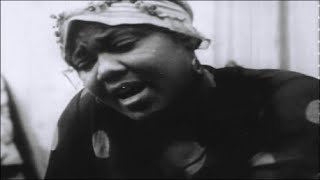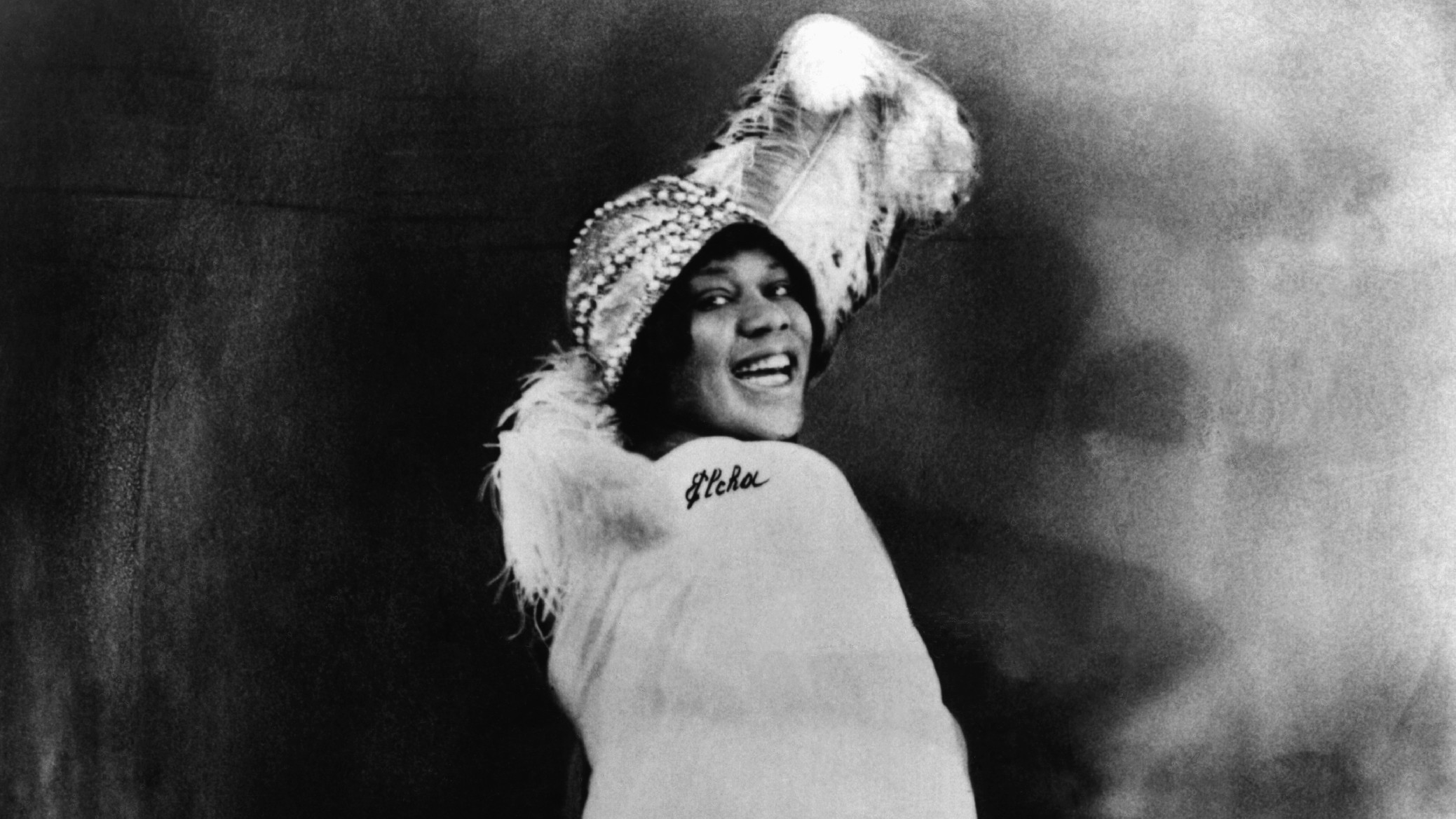Bessie Smith, the “Empress of the Blues,” left an indelible mark on the music world with her powerful voice and emotive storytelling. Born in Chattanooga, Tennessee, in 1894, Smith’s career peaked in the 1920s and 1930s, during which she became the highest-paid Black performer of her era. Her songs, often exploring themes of love, betrayal, and resilience, continue to resonate with audiences today. Here’s a look at ten of her most influential and memorable tracks.
1. “Downhearted Blues” (1923)
“Downhearted Blues” was Bessie Smith’s first major hit and one of her most iconic songs. Written by Alberta Hunter and Lovie Austin, it reflects the despair of a woman betrayed by her lover. Smith’s soulful delivery and emotional depth turned this recording into a massive success, selling over 800,000 copies in its first year. It helped solidify her reputation as the leading blues vocalist of her time.
Notable Lyrics:
“Got the world in a jug, the stopper’s in my hand, But the world gets old, do you understand?”
2. “St. Louis Blues” (1925)
Collaborating with the legendary Louis Armstrong on cornet, Bessie Smith’s rendition of W.C. Handy’s “St. Louis Blues” remains one of her most celebrated performances. The song captures the pain of a woman left by her lover and is a cornerstone of early blues music. The interplay between Smith’s commanding voice and Armstrong’s vibrant cornet makes this recording unforgettable.
Notable Lyrics:
“I hate to see that evening sun go down, Cause my baby, he done left this town.”
3. “Nobody Knows You When You’re Down and Out” (1929)
This song epitomizes the struggles and disillusionments of the Great Depression era. Written by Jimmy Cox, “Nobody Knows You When You’re Down and Out” tells the story of a once-wealthy person who loses everything and finds that fair-weather friends disappear in hard times. Smith’s interpretation imbues the song with authenticity and a deep sense of empathy.
Notable Lyrics:
“Once I lived the life of a millionaire, Spending my money, I didn’t care.”
4. “Tain’t Nobody’s Biz-ness If I Do” (1923)
A declaration of independence and resilience, “Tain’t Nobody’s Biz-ness If I Do” became a classic due to Smith’s defiant delivery. The song, co-written by Porter Grainger and Everett Robbins, emphasizes personal autonomy, a theme that resonated strongly in the context of the 1920s blues movement.
Notable Lyrics:
“If I should take a notion To jump into the ocean, Tain’t nobody’s biz-ness if I do.”
5. “Backwater Blues” (1927)
Smith wrote “Backwater Blues” herself, inspired by the devastating Mississippi River floods of 1927. This song reflects on the catastrophic impact of natural disasters on communities, and Smith’s vocal delivery captures both the personal and collective grief of the time.
Notable Lyrics:
“When it rained five days and the skies turned dark as night, Then trouble’s takin’ place in the lowlands at night.”
6. “Gimme a Pigfoot (And a Bottle of Beer)” (1933)
“Gimme a Pigfoot (And a Bottle of Beer)” is a lively, upbeat tune that showcases Smith’s ability to capture the essence of good times and revelry. Written by Wesley Wilson, the song paints a picture of carefree enjoyment, a departure from the more sorrowful themes in much of her other work.
Notable Lyrics:
“Gimme a pigfoot and a bottle of beer, Send me again, I don’t care.”
7. “Careless Love Blues” (1925)
This song is a haunting exploration of the pain and consequences of unfaithful love. “Careless Love Blues” showcases Smith’s ability to convey vulnerability and heartache, making it one of her most poignant recordings. The song’s enduring appeal lies in its universal theme of love gone wrong.
Notable Lyrics:
“Love, oh love, oh careless love, You see what careless love has done.”
8. “I Ain’t Got Nobody” (1925)
Smith’s rendition of “I Ain’t Got Nobody,” a song originally written by Spencer Williams, became a definitive version. Her interpretation is imbued with a raw emotional intensity that captures the loneliness and desperation at the heart of the blues tradition.
Notable Lyrics:
“I ain’t got nobody, And nobody cares for me.”
9. “Send Me to the ‘Lectric Chair” (1927)
This dark and dramatic song tells the story of a woman who murders her unfaithful lover and demands to be sent to the electric chair. Written by George Brooks, “Send Me to the ‘Lectric Chair” is a powerful narrative that showcases Smith’s dramatic storytelling ability and her talent for conveying complex emotions.
Notable Lyrics:
“Judge, judge, please Mr. Judge, Send me to the electric chair.”
10. “Preachin’ the Blues” (1927)
In “Preachin’ the Blues,” Bessie Smith delivers a sermon on the hardships and temptations of life. This song is notable for its thematic depth and Smith’s charismatic delivery. It highlights her ability to transform personal experiences into universally relatable stories.
Notable Lyrics:
“Down in Atlanta, G.A., Under the viaduct ev’ry day.”
Conclusion
Bessie Smith’s influence on the blues genre and music as a whole cannot be overstated. Her powerful voice, emotive storytelling, and unapologetic expression of the human experience continue to inspire musicians and listeners alike. These ten songs represent a fraction of her rich catalog but highlight the breadth of her talent and the depth of her impact on the world of music.


No responses yet